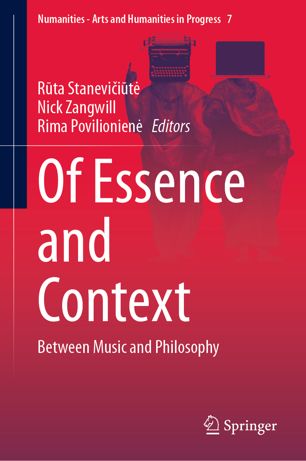

Most ebook files are in PDF format, so you can easily read them using various software such as Foxit Reader or directly on the Google Chrome browser.
Some ebook files are released by publishers in other formats such as .awz, .mobi, .epub, .fb2, etc. You may need to install specific software to read these formats on mobile/PC, such as Calibre.
Please read the tutorial at this link: https://ebookbell.com/faq
We offer FREE conversion to the popular formats you request; however, this may take some time. Therefore, right after payment, please email us, and we will try to provide the service as quickly as possible.
For some exceptional file formats or broken links (if any), please refrain from opening any disputes. Instead, email us first, and we will try to assist within a maximum of 6 hours.
EbookBell Team

4.0
36 reviewsThis book provides a new approach to the intersections between music and philosophy. It features articles that rethink the concepts of musical work and performance from ontological and epistemological perspectives and discuss issues of performing practices that involve the performer’s and listener’s perceptions.
In philosophy, the notion of essence has enjoyed a renaissance. However, in the humanities in general, it is still viewed with suspicion. This collection examines the ideas of essence and context as they apply to music. A common concern when thinking of music in terms of essence is the plurality of music. There is also the worry that thinking in terms of essence might be an overly conservative way of imposing fixity on something that evolves. Some contend that we must take into account the varying historical and cultural contexts of music, and that the idea of an essence of music is therefore a fantasy.
This book puts forward an innovative approach that effectively addresses these concerns. It shows that it is, in fact, possible to find commonalities among the many kinds of music. The coverage combines philosophical and musicological approaches with bioethics, biology, linguistics, communication theory, phenomenology, and cognitive science. The respective chapters, written by leading musicologists and philosophers, reconsider the fundamental essentialist and contextualist approaches to music creation and experience in light of twenty-first century paradigm shifts in music philosophy.